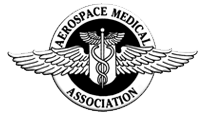Using Social Security Data to Prevent Fraud / Aeromedical Falsification

TestimonyJuly 17, 2007 Statement of Nicholas A. Sabatini, Associate Administrator for Aviation SafetyBefore the Committee on Transportation and Infrastructure, Subcommittee on Aviation, on FAA’s Oversight of Falsified Airman Medical Certification Applications Chairman Costello, Congressman Petri, and Members of the Subcommittee, I am pleased to appear before you today to discuss the Federal Aviation Administration’s oversight of the Airman Medical Certification application process. Let me assure you at the outset that the FAA takes this matter seriously, and we are very concerned about any falsification of information in our nation’s aviation system. Let me also say that the vast majority of our nation’s pilots are honest, dedicated, and have contributed significantly to our current unprecedented safety record. We support and are in the process of implementing the recommendations of the Inspector General on falsified airman medical applications, as I will discuss. We are also taking other proactive steps regarding this issue, which I will also discuss. As you are aware, the Department of Transportation’s Inspector General issued a report in 2005 describing the results of an investigation conducted jointly with the Social Security Administration’s Inspector General, the United States Attorney’s office for Northern California, and the FAA’s Office of Aerospace Medicine, Western-Pacific Region, into the falsification of applications for FAA airman medical certificates. The investigation was known as “Operation Safe Pilot.” I will not spend time discussing the details of the IG’s findings, for they are already well known to you; however, I will discuss the IG’s recommendations, and the FAA’s response to those recommendations. The Inspector General recommended that FAA work with the Social Security Administration (SSA) and other disability benefits providers, to develop and implement a strategy to conduct checks of applicants for airman medical certificates with the databases of SSA and other disability providers, and take appropriate enforcement actions where falsifications are found. The IG also recommended that FAA consider revising our Application for Airman Medical Certificate to require applicants to explicitly identify whether they are receiving medical disability benefits from any provider. I am pleased to inform you that the FAA is moving forward to implement both of the IG’s recommendations. FAA is working to develop a program, in cooperation with the Office of the Inspector General for the Social Security Administration (SSA), to cross-check randomly selected applicants for FAA airman medical certificates with the SSA disability database to determine if any applicants are receiving disability benefits from SSA. We hope to start by cross-checking applicants to the SSA database, because to receive SSA disability benefits, an individual must be totally disabled. Thus, virtually any applicant who is receiving SSA disability benefits will necessarily have a condition that would disqualify the applicant from holding an airman medical certificate from the FAA. We are still in discussions with the Social Security Administration, with the goal of signing a Memorandum of Understanding regarding the use of their database, and exactly what information the SSA will be able to divulge without violating privacy rules. Before we consider expanding the cross-checking of applicants to disability databases other than the Social Security Administration, we have to consider the potential resources required to conduct investigations and make medical determinations regarding an applicant’s disability and whether that condition disqualifies the applicant from holding an airman medical certificate. In order to proceed with cross-checking applicants for airman medical certificates against the SSA disability database, or any other database, FAA must first revise the system of records notice for FAA’s “Aviation Records on Individuals” to permit disclosure of the records through a routine use. This will require publishing a notice of the revised system of records in the Federal Register, and a period for public comments, before the records may be disclosed, and FAA can begin any cross-checking. This process may take six to twelve months to complete. However, we will immediately begin efforts to implement the IG’s second recommendation, the addition of a question to the airman medical certificate application regarding disability benefits. The FAA will take appropriate administrative actions to change the application form to include the new question. Once that is completed, the new application form can be printed and distributed to Aviation Medical Examiners (AME) nationwide. We are proposing to change the Airman Medical Certificate application to add a question specifically asking if the applicant is receiving any disability benefits. While this additional question appears straightforward, the investigative work will begin after a positive response to the question. Once an applicant indicates that he or she is receiving disability benefits, FAA must then investigate to determine the disability benefits provider, the condition for which the applicant is receiving disability benefits, and the extent of the applicant’s disability. Social Security disability benefits, as I’ve already stated, are based on 100 percent disability, and would, presumably, disqualify the applicant from holding an airman medical certificate in virtually all cases. However, the Department of Veterans Affairs (VA) disability benefits, for example, cover a wide range of gradation from minor disabilities to total disability, and many conditions that would qualify for VA benefits would not necessarily disqualify the applicant from holding an airman medical certificate. FAA is also being proactive in other areas regarding falsification of data on airman medical certificate applications. The FAA’s Civil Aerospace Medical Institute (CAMI) has now developed an integrated Scientific Information System (SIS) that will provide a continuous monitoring of all airman medical certification records compared to aviation accidents or incidents and post-mortem toxicology reports. The FAA will therefore have the capability of continuously monitoring any aircraft accident and assessing any discrepancy between the pre-mortem certification and post-mortem findings. This includes prescription and non-prescription medications and medical abnormalities that could affect the ability to safely perform duties permitted by the airman certificate, which are related to National Transportation Safety Board causal accident factors. In 2006, the FAA’s Office of Aerospace Medicine initiated a routine process analysis study to evaluate and improve the efficiency of airman medical certification within the FAA. The Aviation Medical Examiner (AME) Airman Certification Quality Assurance study evaluated the accuracy of AMEs in determining the suitability of airman medical certification. The review of 2000 records, randomly selected from 320,000 examinations, determined that 2.5 percent of records contained medical issues that should have resulted in the AME not issuing a certificate. However, further review indicated that most of these cases could have been issued if additional information was provided. In addition, 1.8 percent of the cases were submitted without enough information to determine if the airman should have been issued a certificate. Again, it was determined that most of these cases could have been issued if all information had been submitted. Each of these proactive measures will assist the FAA in monitoring this issue. We are committed to expanding our efforts to review medical certificates and pursue appropriate enforcement actions when falsifications are discovered. Let me conclude, Mr. Chairman, by stating that the FAA’s first priority always has been, and always will be, safety. Safety is our agency’s mission, and we have dedicated our careers to promoting safety. It is a responsibility we do not take lightly. This concludes my statement, and I will be happy to answer any questions the Committee may have. |
Amnesty for Previously Unreported Conditions
THE GOOD NEWS — Pilot Medical Solutions has assisted many pilots with the delicate process of amnesty petitions. Revealing previously unreported medical conditions to the FAA does NOT automatically initiate adverse FAA action.
Medical certification approval is determined on the basis of the pilots’ current and complete medical status. Pilot Medical Solutions provides confidential assistance.
Information / falsification reported to the FAA’s anonymous Safety Hotline or discovered following an aircraft mishap are NOT protected from adverse actions, however, requesting amnesty through Pilot Medical Solutions is fast and increases the likelihood for favorable consideration. MORE




